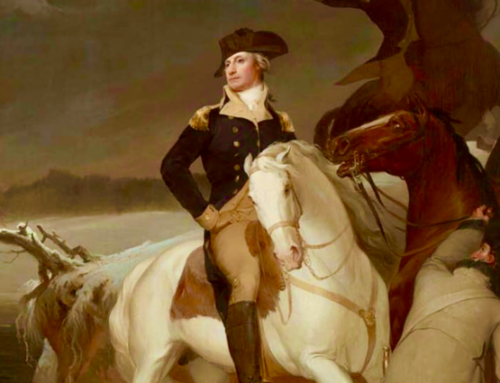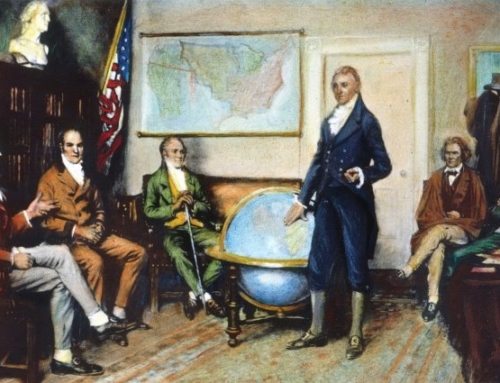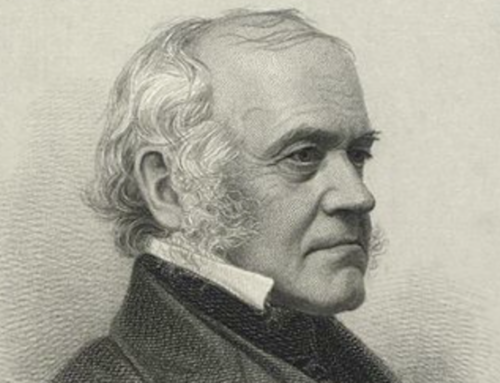When we study the classics, we might have the atlas open beside the book to remind us where we are and when we live. We can feel the overlays of history and empires and languages that sweep over the same disputed places. Relevant and contemporary to us, the great actions of mind and spirit strive against and bend around truths not subject to cancellation.
 With the election now some three weeks away, in the presence of so many uncertainties about our national direction, the classics have a particular appeal. So, for that matter, does a little meditation on those things that preceded our existence and that will remain (as Keats puts it) in midst of other woe than ours.
With the election now some three weeks away, in the presence of so many uncertainties about our national direction, the classics have a particular appeal. So, for that matter, does a little meditation on those things that preceded our existence and that will remain (as Keats puts it) in midst of other woe than ours.
In Book IX of the Odyssey, which our students read in Humanities 101, the great hero Odysseus tells his story to the highly cultured but isolated Phaiakians. Early on in his narrative, he explains his efforts to get home to Ithaka, an island on the western side of Greece, after the Trojan War. His twelve ships sailed down through the Aegean Sea, and, as he tells his listeners, “I would have come home unscathed to the land of my fathers, / but as I turned the hook of Maleia, the sea and current / and the North Wind beat me off course, and drove me on past Kythera.”
When I read this passage the other night, I hefted up from the floor near my chair the immense, superbly detailed Atlas of the World (Oxford University Press) that I bought several years ago in envy of a son-in-law who already had one. I discovered that the ancient Maleia, the southeasternmost tip of the Peloponnese, is now called Cape Maleas. Close by it, just as Odysseus says, is the island Kythera that his twelve ships were blown past. “Nine days then,” he goes on, “I was swept along by the force of the hostile / winds on the fishy sea, but on the tenth day we landed / in the country of the Lotus-Eaters.” To judge by the direction of the wind, the home of the Lotus-Eaters must have been somewhere in North Africa, probably current-day Libya but perhaps farther west in Tunisia.
What is so fascinating about finding Odysseus in a contemporary atlas, so to speak? It has something to do with the relation between geography and history, I would say, or between permanent truths and our relation to them. Places do not move. The headland of Cape Maleas is still famous for bad weather, and anyone sailing there will face the same realities Odysseus did. I will refrain from speculating about where one might encounter contemporary Lotos-Eaters, but a neighboring state to our south might qualify.
 Geography, in the sense I mean it, is the record of permanent places. An analogy might help here. Just off the Falls Trail at Sinks Canyon near Lander, there is a tree with a huge rock crushing into its trunk. The rock is to the tree (see the photograph to the left) what the geography of the Mediterranean, for example, is to its history. The stories of the Greeks, the Phoenicians, the Romans and Carthaginians, the Ottoman Turks, the Holy Alliance at Lepanto (as we remembered yesterday on the Feast of the Holy Rosary), and the forces of the Axis and the Allied powers of World War II all bend around the immoveable loci of geography.
Geography, in the sense I mean it, is the record of permanent places. An analogy might help here. Just off the Falls Trail at Sinks Canyon near Lander, there is a tree with a huge rock crushing into its trunk. The rock is to the tree (see the photograph to the left) what the geography of the Mediterranean, for example, is to its history. The stories of the Greeks, the Phoenicians, the Romans and Carthaginians, the Ottoman Turks, the Holy Alliance at Lepanto (as we remembered yesterday on the Feast of the Holy Rosary), and the forces of the Axis and the Allied powers of World War II all bend around the immoveable loci of geography.
This bending is the point. When I look at the tree and the rock, the feel of live action is inescapable, almost like watching a vicious clip in football. Penalty flags ought to be flying. But in fact, the tree itself has been dead for many years; a number of people—who knows when?—have carved their names or initials into it, some when the bark was still on. The lichened rock, far from crashing into the tree, probably came to rest eons before Homer wrote. In the last century or two, the seedling that became this tree bent around the rock as it grew, year after year, into the large living presence that in time grew old and eventually died, leaving a vivid form that is and is not the action it seems.
Metaphors limp, as they say. Are trees not better, for example, when they grow without impediment into the full realization of their natures? Yes, in a sense, but perfect trees, like perfect children, are not as interesting as those that overcome obstacles. I cannot help but see a resemblance between the rock-and-tree configuration on the Falls Trail and the great books, the classics, which have been passed down for centuries. They were written by men and women now long dead, often in languages no longer spoken, in some confrontation with permanent realities—the geography of being. Those living writers bent their minds around some obstacle whose shape became visible in their thought. Those who read these books now (and write their names in them) can, with attention, still experience the live rush of original thought because these works retain the central action of their origin.
In Henry David Thoreau’s Walden (a more profoundly conservative book than many seem to recognize), the chapter called “Reading” always stirs my spirit, and this passage in particular:
Men sometimes speak as if the study of the classics would at length make way for more modern and practical studies; but the adventurous student will always study classics, in whatever language they may be written and however ancient they may be. For what are the classics but the noblest recorded thoughts of man? They are the only oracles which are not decayed, and there are such answers to the most modern inquiry in them as Delphi and Dodona never gave. We might as well omit to study Nature because she is old.
It is a passage I have quoted before. I would add that when we study the classics, we might have the atlas open beside the book to remind us where we are and when we live. It is difficult not to feel the overlays of history and empires and languages that sweep over the same disputed places—Greece, Israel, Persia, Egypt, Sicily, Italy, France. It is difficult not to see as relevant and contemporary to us the great actions of mind and spirit. They are great because they strive against and bend around truths not subject to cancellation.
Republished with gracious permission from Wyoming Catholic College’s weekly newsletter.
The Imaginative Conservative applies the principle of appreciation to the discussion of culture and politics—we approach dialogue with magnanimity rather than with mere civility. Will you help us remain a refreshing oasis in the increasingly contentious arena of modern discourse? Please consider donating now.
The featured image is courtesy of Pixabay and has been brightened for clarity. The in-text image is courtesy of the author.







Leave A Comment